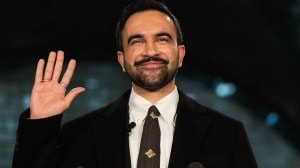A new intellectual revolution
Back in the 8217;80s, Tony Blair, a junior shadow minister, was sitting quietly with his constituency agent, John Burton...

Back in the 8217;80s, Tony Blair, a junior shadow minister, was sitting quietly with his constituency agent, John Burton, when he suddenly exclaimed: 8220;You know, John, I understand it all. Finally, I8217;ve got it.8221; When Burton asked him what he was talking about, Blair triumphantly replied: 8220;Microeconomics!8221; Twenty years later the remark seems charmingly naiuml;ve. Could a Labour spokesman with an economic portfolio really have been so pleased to understand the basic ideas of supply and demand, pricing and competition? But at the time it was a considerable intellectual achievement for a politician of the Left, and it was to prove an important political moment too.
I wonder whether in a couple of decades8217; time, our own fumbling first acquaintance with new thinking will appear similarly amusing. For an intellectual revolution is under way that will change the way we think about public policy just as the free market economists did in the 8216;80s. I wonder whether one day soon a future party leader will turn round to his agent and say: 8220;Finally, I8217;ve got it! Human behaviour.8221; Those who doubt that there is something going on in the world of ideas should get themselves a publisher8217;s catalogue.
You can see already such books seeping into the political mainstream. Yet the integration of the academic work on human behaviour into politics is still very much in its infancy. It is roughly now where economic understanding was in about 1978, before the Thatcher revolution.
Excerpted from a comment by Daniel Finkelstein in 8216;The Times8217;
- 01
- 02
- 03
- 04
- 05































